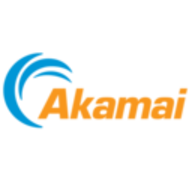


Fortinet FortiWeb and Akamai App and API Protector both compete in the web application firewall and API protection category. FortiWeb appears to have the upper hand in integrated network environments due to its flexibility and cost-effectiveness, while Akamai is strong in API-centric architectures with superior scalability.
Features: Fortinet FortiWeb offers virtual patching, layer 7 server load balancing, and zero-day protection, making it ideal for complex network environments. Akamai App and API Protector provides cloud-based security, high scalability, and effective DDoS protection, particularly suited for API-centric architectures.
Room for Improvement: Fortinet FortiWeb could enhance its support for high throughput, improve patch management, and make its GUI more user-friendly. Akamai App and API Protector could benefit from improvements in managing custom rules and its captcha feature, along with better analytics and integration capabilities.
Ease of Deployment and Customer Service: Fortinet FortiWeb supports a variety of deployment options including on-premises, hybrid, and cloud, offering flexibility with the potential downside of slower technical support response. Akamai App and API Protector focuses on cloud deployment for easy scaling, receiving positive feedback for its prompt customer service.
Pricing and ROI: Fortinet FortiWeb delivers competitive pricing and flexible licensing, making it cost-effective for integrated networks. Akamai App and API Protector, although more expensive, offers a comprehensive security package with flexible usage-based billing, valuable for organizations focusing on robust API security.
For the small project I was working on, using the basic tier provided a huge improvement at zero cost.
In terms of return on investment with Cloudflare, it costs my time to set them up, but basically once they're set up, it's done.
Cloudflare does not offer hands-on technical support to fix customer problems but rather a self-service model.
I would rate the technical support with Cloudflare as excellent every time I've had to call them.
I have primarily worked not with the tool's customer support but with the product's sales engineers and technical sales engineers, who seem to know their stuff.
Their support is truly exceptional when I compare it with similar large-sized companies.
The expertise of engineers varies across different time zones, affecting the effectiveness of the support provided, especially during our daytime.
The back-end development team is available, and if any issue arises, they will help us immediately by providing solutions when contacted.
It is a SaaS tool, but the fact that they have workloads deployed across the world proves that it is a highly scalable tool.
The tool offers very good performance, even during high-traffic periods.
I rate the solution’s scalability an eight out of ten.
You can add additional boxes that combine together to achieve a bigger throughput for investigation and research.
I rate the solution’s stability an eight out of ten.
The service is very stable with no impacts during high-traffic periods.
We have not faced any significant issues during deployments.
Despite these challenges, overall, Cloudflare remains the preferred solution compared to Azure, AWS CloudFront, and Google Cloud Armor.
Areas like how assessment, discovery, and payload are dealt with and how it all comes into your organization can be considered when trying to make suggestions to Cloudflare for improvements.
There are some performance considerations when it comes to dynamic content that involves fetching data from databases or using APIs.
If the GUI includes notifications and improved logging capabilities that allow us to see traffic and store logs for six months, that would be very helpful.
Fine-tuning is a room for improvement in Fortinet FortiWeb.
After the customer submits a specific question and requests troubleshooting help from Fortinet support, it takes at least three to five days to provide a proper answer.
I find it to be cheap.
I rate the product’s pricing a five out of ten, where one is cheap, and ten is expensive.
The tool is a premium product, so it is very expensive.
For VM machines, the price increases based on CPU configurations of 2, 4, or 8 CPUs.
Most security products charge less at the time of purchase because of competition, but when we go to renewals, the prices become very high.
Fortinet FortiWeb is cost-effective compared to solutions like F5.
The most valuable features of the solution are performance and security.
Techniques like minification and image compression reduce the size of assets, leading to better performance and faster user load times.
The solution has been able to compare it to the market, and I think the product has taken great strides in automating quite a bit of things, and they use a lot of AI.
The area in which Akamai excels compared to other competitors with a WAF is in threat intelligence, as threats continually evolve, requiring ongoing updates to backend algorithms to effectively capture smart bots.
Fortinet FortiWeb has positively impacted my organization because most of our servers and applications are secure from hackers and other security threats.
Fortinet's pricing is way more competitive than Cisco or Palo Alto.
The machine learning-based threat detection is significant, as it uses a learning method that eases the configuration burden, making it very useful.


| Company Size | Count |
|---|---|
| Small Business | 46 |
| Midsize Enterprise | 8 |
| Large Enterprise | 25 |
| Company Size | Count |
|---|---|
| Small Business | 4 |
| Midsize Enterprise | 7 |
| Large Enterprise | 18 |
| Company Size | Count |
|---|---|
| Small Business | 60 |
| Midsize Enterprise | 27 |
| Large Enterprise | 36 |
Cloudflare enhances web performance and security with features like CDN caching and DDoS mitigation while providing easy DNS management and intuitive setup through its user-friendly dashboard.
Cloudflare is recognized for its comprehensive web security and performance solutions. Speed improvements are achieved through caching mechanisms and DDoS protection, combining ease of DNS management with flexible page rules. The robust analytics and threat insight tools provide valuable data, assisted by a user-friendly dashboard allowing quick setup and configuration. An API offers dynamic DNS settings ensuring low latency and high performance across the globe.
What are Cloudflare's key features?Cloudflare finds utility across industries for DNS management and defense mechanisms. Its content delivery network assures fast content distribution and fortified security. Businesses integrate features like web application firewalls, load balancing, end-to-end SSL, and zero trust to protect websites from cyber threats while ensuring resilience and reliable performance.
Akamai App and API Protector provides website security by preventing DDoS attacks, acting as an application firewall, managing content delivery, and monitoring APIs. It adapts to threat profiles and is used for fast media delivery and identifying malicious activities.
Akamai App and API Protector offers strong protection, adaptable security features, and efficient traffic management. Its WAF blocks IP addresses and country-specific threats while preventing SQL injections. Companies utilize it for scalable CDN services and comprehensive traffic analysis. Known for its cost-effectiveness and user-friendly dashboard, this protector stands out for its customizable rules and technical support. Users also highlight the ease of integration and detailed attack insights available through its advanced dashboard.
What are the key features of Akamai App and API Protector?In media, Akamai App and API Protector ensures smooth streaming by handling high bandwidth demands. E-commerce companies use it to guard against fraud and data breaches. Financial sectors rely on its ability to protect sensitive transactions. Implementations in healthcare focus on safeguarding patient data while maintaining compliance with regulations.
Fortinet FortiWeb is a Web Application Firewall (WAF) that protects your web applications and APIs from attacks targeting known as well as unknown vulnerabilities. As the surface of your web applications evolves with each change of existing features and deployment of new features, your APIs are left exposed. Fortinet FortiWeb provides the board protection capabilities required to protect web applications without sacrificing performance or manageability.
Fortinet FortiWeb is an automatic, advanced multi-layer solution that provides secure protection by discerning irregular behavior and distinguishing between malicious and benign anomalies. In addition, the approach delivers powerful bot mitigation capacities which authorize harmless bots to connect while blocking malicious bot activity securely. Regardless of where an application is hosted, Fortinet FortiWeb will safeguard business applications by providing deployment options, such as virtual machines, hardware appliances, and containers that can be deployed in the data center, cloud environments, or in the cloud-native SaaS solution.
Fortinet FortiWeb Features and Benefits
APIs and web applications have become integral to the rising demand for business-critical applications. Now more than ever, businesses are in need of an automatic firewall that will provide them with security, without sacrificing performance or reliability. Fortinet FortiWeb offers a variety of features and benefits, including:
Reviews from Real Users
Fortinet FortiWeb offers an industry-leading Web Application Firewall, and users are satisfied with it for a number of reasons, including the ability to control everything from the dashboard and the PCI-compliant reports it offers.
Carlos P., director of business and digital transformation at SERNIVEL3, notes, "You have the ability to control everything from one single dashboard."
A director at a tech service company, says, "Banks have to be compliant with PCI and other things, and FortiWeb is absolutely amazing in terms of providing these reports. Otherwise, they will have to spend a lot of time on them."
We monitor all Web Application Firewall (WAF) reviews to prevent fraudulent reviews and keep review quality high. We do not post reviews by company employees or direct competitors. We validate each review for authenticity via cross-reference with LinkedIn, and personal follow-up with the reviewer when necessary.